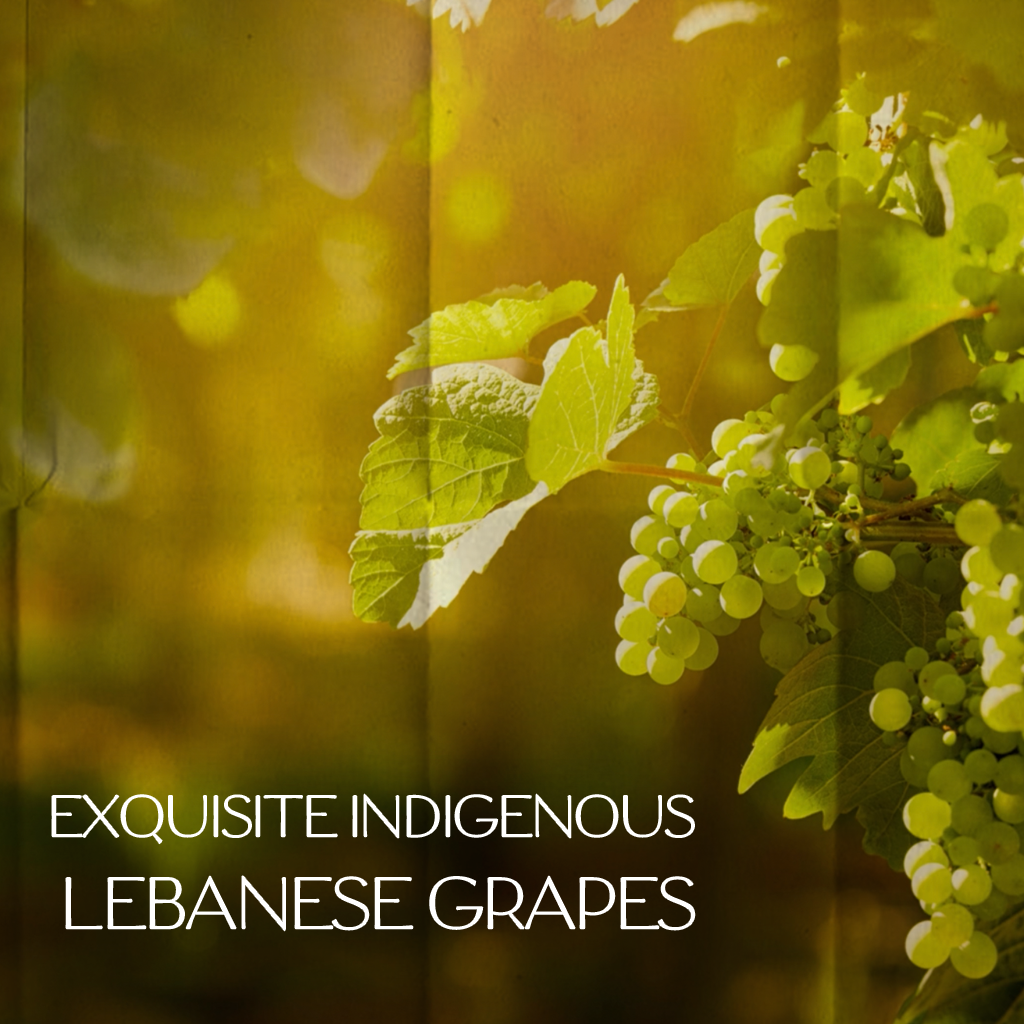Exquisite Indigenous Lebanese Grapes

Native Lebanese grapes have thrived in Lebanon’s diverse and pleasant landscape for hundreds of years, serving as a tribute to the country’s rich winegrowing legacy. This ancient region, which is situated between the Mediterranean Sea and mountains, has variations in climate that have helped in producing a great range of different types of grapes, each of which has a distinctive history and heritage.
Lebanese vineyards are home to a fascinating diversity that illustrates the persistent nature of these native plants, such as Obaideh, Merwah, and Meksassi. These grapes are not just ordinary fruits; they are also a representation of the culturally significant accumulated memory of the generations who have cultivated them.
Obaideh
A grape variety known as the Obaideh grape is largely produced in Lebanon’s Bekaa Valley. It is one of the country’s oldest indigenous grape varieties and is renowned for its use in the creation of traditional Lebanese wines, as well as the well-known alcohol, Arak. Moreover, these traditional wines are frequently produced using the Obaideh and Merwah grapes.
The terroir of the Bekaa Valley significantly influences the distinctive qualities and flavor of the Obaideh grape due to its Mediterranean climate, which experiences cold winters and hot, dry summers. Furthermore, given the warmth required for ripening and the high perpetual temperature range that helps the grapes retain their acidity, Bekaa Valley’s climate is ideal for such a grape to flourish.
Chateau Musar is one of the greatest wineries in the Bekaa Valley. One of their finest wine creations is "Chateau Musar White 2013," which includes two Lebanese native grape types, Obaideh and Merwah.
"Chateau Musar White 2013" has a deep golden color with honeyed scents of tropical fruits like pineapple and banana with toasted, buttery undertones. The palate is full of quince, apricot and luscious yellow fruits, with lingering nuances of pineapple. Additionally, it also has almonds and dried fruits with oak-aging characteristics. "Chateau Musar White 2013" is considered a vintage, having honeycomb and yellow fruit flavors. The contrast between the oily texture and the refreshing acidity is nicely balanced. Lastly, such a wine, if properly preserved, can last for decades.
Merwah
Another native grape from Lebanon that is closely related to the Obaideh grape is the Merwah grape. Traditional grape varietals like Merwah have been planted in Lebanon for several decades. The Merwah grape’s characteristics and those of the wines made from it are greatly influenced by terroir. Similar to the Obaideh grape, the Merwah grape is primarily grown in the Bekaa Valley, as its terroir contributes to the distinctive characteristics of this grape variety.
Winemakers who are concentrating on creating wines that highlight the indigenous variety and the unique terroir of the Bekaa Valley are more devoted to the cultivation of both Merwah and Obaideh grapes due to their historical value and connections to the Lebanese winemaking legacy.
Meksassi
The Jezzine region, where the Karam family has been producing grapes for generations, is known for its ancient, adaptable Mekassi grape, which is frequently found growing wild around the massive Jezzine oak trees. Moreover, the Karam family manufactures wines made solely from this variety.
Recognizing the capabilities of the Meksassi grape, the Karam family fermented it to craft a well-balanced wine that has elements of green apples, citrus fruit and white flowers from Southern Lebanon. In terms of taste, it offers impressive acidity paired with the distinctive mouthfeel characteristic of Mekasassi while also exhibiting outstanding acidity, fragrances of waxed honey and stone fruit, culminating in a lingering finish. While Meksassi is enjoyable
when consumed at a young age, it also possesses notable aging potential.
Karam Wines’ vineyards can be found up to 1,400 meters above sea level. The wines’ distinctive freshness, well-balanced acidity, modest alcohol content, and distinctive mineral traits unique to the Jezzine region are all a result of their remarkable location, which faces west toward the Mediterranean Sea. Each grape is thoughtfully planted in its optimal terroir, taking advantage of the Southern region’s distinct geological composition, and nurtured using precise agricultural
techniques. The ultimate blend is produced by Karam Wines using a sophisticated method to individually vinify each small lot to reveal its real essence and regional characteristics.
